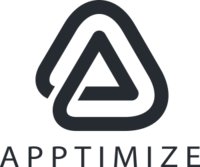Tell us about your role at Apptimize and the team/technology you handle.
I joined Apptimize as VP of Product this past June. In my role, I work with the product team to understand what our customers want out of our platform, help them find new ways to leverage the data at their fingertips, and then work with developers to build and ship new features.
What is the overall state of Mobile Marketing in the tech industry?
Mobile Marketing tends to be a blanket term that includes everything from advertising on Facebook and reaching customers with push notifications to better conversion rates within the mobile app or mobile website. But regardless of what definition of Mobile Marketing people are talking about, the general trend is that it’s getting more sophisticated, more competitive, and more important.
For the last 2 decades, consumers have been flocking to mobile, followed by advertising dollars. Big companies are just starting to catch up now and realizing that they need to invest in mobile to stay competitive. It doesn’t matter if you’ve been in the Fortune 1000 for the last century. If you are a consumer brand that doesn’t have a great mobile app or at least a great mobile website, you just can’t compete with the Amazons and Netflixes of the world.
The Super Bowl has always been one of the biggest advertising events globally. How should digital marketers leverage this?
The Super Bowl is a great opportunity for second screen experiences. We all know that a huge trend in TV viewing over the last decade is second screens. Viewers don’t just watch anything anymore without sporadically looking at their phones. We’ve seen many brands do great things (for free or for a fraction of what a Super Bowl ad costs) by creating mobile experiences that accompany the Super Bowl or by staying topical on social media.
There has certainly been a trend in recent Super Bowls of advertisers thinking holistically about a broad campaign surrounding their Super Bowl ad — with digital ads and social media content leading up to the event to try to create a buzz, and follow-on ads and content across multiple channels afterward.
Is a television campaign enough to advertise during the Superbowl? If not, then why is that so?
It seems crazy to spend millions of dollars on producing a video and placing it in the Super Bowl to not do other things to get more mileage out of the ad. It’s become commonplace for brands to do related follow-on advertising with more television spots, but we are also starting to see brands think more holistically about their campaigns.
Last year, Tide supplemented their creative TV commercials with an active social media presence, even reacting nearly instantly to an unplanned short broadcast blackout with a funny and relevant tweet using the trending-at-the-time #TideAd hashtag.
Why is it important for brands to have data on how consumers engage with campaigns across platforms?
Data is everything. It’s mind-blowing to us at Apptimize that Nielsen is only just now starting to measure mobile and OTT as part of its viewership dataset. We know that everyone is increasingly consuming content on multiple devices throughout the day. The same individual is jumping from TV (cable set-top box or streaming device) to mobile to web, often in a given day. A brand that doesn’t measure all of that activity is definitely not understanding the customer.
Here at Apptimize, we see many of our customers trying new things and then tracking how a change to the mobile app will impact OTT and/or web views. For example, some streaming brands will push users to add shows to their playlist on the mobile app rather than expect customers to actually watch entire episodes or movies. Those brands will then track whether that change encourages more minutes of viewership later in the day on OTT. The user experience is connected in this way, so brands have to be thinking that way too.
How important is the role of Artificial Intelligence in cross-platform advertising metrics?
Most brands are just starting to understand what AI means for them, but this is the direction that the industry is going. Brands have seen the success of features like Amazon’s “suggested items” list and have started to implement personalized recommendations around both ads and their content. Getting these algorithms right and as specifically tailored to users as possible is critical to user engagement.
Typical TV ad targeting allows for only the broadest of demographic segmentation by channel, but the move towards cross-platform engagement means that brands can leverage user data to create highly relevant micro-segments to target. There are just so many things competing for that customer’s attention. A poorly targeted recommendation is going to lose viewers.
What Sales and Marketing technology tools does Apptimize use for testing?
I’d love to say that we use our own testing tools, but the reality is that we are in a very different business than our customers. We don’t develop mobile applications, and as a business-to-business company, we are not running the same types of experiments that our consumer-facing customers are.
That said, we are highly data-focused as an organization. We spend a lot of time and effort optimizing the performance of our SDKs, and we are always measuring the impact of each new release. Our SDKs are on over a billion devices worldwide and that means there is always something interesting to learn from the performance data they are sending back.
What apps/software/tools can’t you live without?
I’ve always been a big fan of Atlassian’s developer tools platform. We use Confluence to lay out our product roadmap, capture new ideas, and ultimately define the specifics of what we want to build. At that point, things move over to JIRA where our software developers track and manage the process from development to testing, to shipping.
I also think it’s critically important to have good data tools that provide broad company access to meaningful analytics. We recently implemented Periscope Data and our product and customer teams use it to understand customer usage patterns and measure product performance.
What is the best piece of professional advice that you have received?
Relatively early in my career, I remember complaining to my manager at the time about some of the inefficiencies I noticed or frustrations I had about the way some aspects of the company worked. These things weren’t directly related to my role as a product manager, and I simply wanted to pass them along as feedback to the company. His response was essentially, “Why don’t you just go fix these things?” with an added, sarcastic, “Do you think anyone would be upset if you did?” I think his advice, essentially to be proactive in solving problems, even if they aren’t really your problem, is both generally good advice and also especially relevant for product people.
Product people tend to bounce around between many different tasks and parts of the organization and are often uniquely positioned to stop and fix a problem that no one really owns. I’ve tried to take this to heart over my career and am always on the lookout for these types of problems that I might be able to jump on.
Scott is the VP of Product at Apptimize where he leads product strategy for their cross-platform experimentation tools. Previously, he was VP of Product Management at Applied Predictive Technologies, a retail analytics and experimentation company that was acquired by MasterCard in 2015. He has an MBA from Stanford and a BSE in Electrical Engineering and Computer Science from Duke.

Apptimize is the leading mobile A/B solution. They empower product teams to increase revenue, engagement and retention by iterating faster and smarter. Their mission is to enable product managers to optimize, deploy, and manage the features and UX of their native iOS and Android apps in real-time through instant updates, A/B testing, feature flags, and analytics.












Comments are closed.